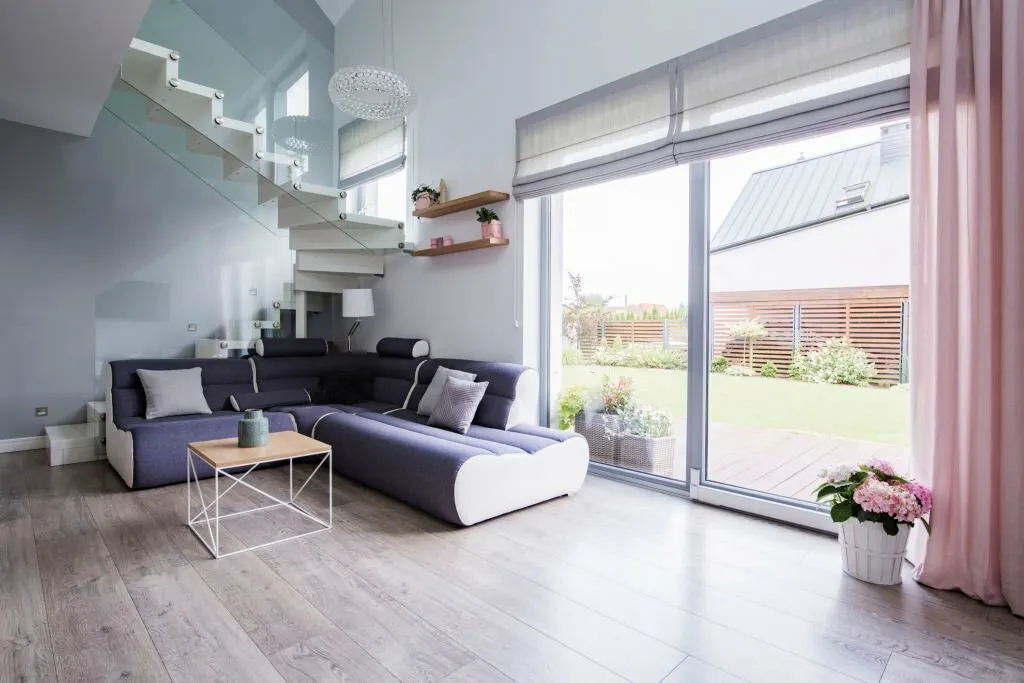Roman blinds and Roman shades are both popular window treatments known for their elegance and versatility. However, they have distinct features that make them suitable for different purposes. In this article, we’ll explore the differences between Roman blinds and Roman shades, helping you make an informed decision when choosing window coverings for your home.
Understanding Roman Blinds
Roman Blinds – An Overview
Roman blinds, also known as Roman shades in some regions, are window coverings that stack up evenly when raised. They are constructed from a single piece of fabric, which, when raised, forms neat, horizontal pleats. These blinds are known for their timeless and classic appearance.
Types of Roman Blinds
Roman blinds come in various styles, including flat, hobbled, and waterfall. Each style has its unique appearance, making it suitable for different design preferences and functional requirements.
Operation and Functionality
Roman blinds are typically raised and lowered using a cord system. When raised, they create soft folds that add an elegant touch to the room. They are perfect for providing privacy and controlling the amount of natural light entering the space.
Understanding Roman Shades
Roman Shades – An Overview
Roman shades are window coverings that are constructed with one continuous piece of fabric. Unlike Roman blinds, they are not characterized by horizontal pleats when raised. Roman shades have a smoother, flat appearance, and they can be made from various materials, including fabric, bamboo, or even jute.
Types of Roman Shades
Roman shades offer a wide range of styles, such as flat, looped, and balloon. These different styles give you the flexibility to choose the one that best suits your décor and functional requirements.
Operation and Functionality
Roman shades are usually operated by a cord mechanism or a cordless system, depending on the style and brand. They can be raised to different heights, allowing you to control the amount of natural light and privacy in your room.
Key Differences of Roman Blinds and Roman Shades
Fabric and Appearance
The primary difference between Roman blinds and Roman shades is their appearance. Roman blinds have distinct horizontal pleats when raised, while Roman shades have a smoother, flat appearance. The choice between the two depends on your aesthetic preferences.
Operation
Roman blinds are typically raised and lowered using a cord system, whereas Roman shades can be operated by cords or cordless mechanisms. The choice of operation can affect convenience and safety, especially in homes with children or pets.
Design Flexibility
Both Roman blinds and Roman shades offer a variety of styles, but the design flexibility may differ. Roman blinds are excellent for creating an elegant and classic look, while Roman shades can adapt to a broader range of interior design styles.
Making the Right Choice
When deciding between Roman blinds and Roman shades, consider your design preferences, the room’s functionality, and your safety concerns. Roman blinds are perfect for a classic and elegant look, while Roman shades offer more versatility in terms of design and operation.
Conclusion
In summary, Roman blinds and Roman shades share the same name but differ significantly in their appearance, operation, and design flexibility. Your choice should be based on your individual needs and preferences, and by understanding these key differences, you can make an informed decision.
FAQs
Q1: Can Roman blinds and Roman shades be custom-made to fit my windows perfectly? Yes, both Roman blinds and Roman shades can be custom-made to ensure a perfect fit for your windows.
Q2: Are Roman blinds and Roman shades suitable for all types of rooms? They can be used in various rooms, but the choice depends on your design and functional requirements.
Q3: Are there any safety concerns with corded Roman blinds and Roman shades? Yes, corded window coverings may pose safety risks for children and pets. It’s advisable to choose cordless options for enhanced safety.
Q4: Which one is more energy-efficient, Roman blinds, or Roman shades? The energy efficiency depends on the fabric and material you choose. Some Roman blinds and shades offer thermal insulation, which can improve energy efficiency.
Q5: Can I install Roman blinds or Roman shades myself, or should I hire a professional? Both can be installed as DIY projets, but it’s recommended to seek professional assistance for a flawless installation.

